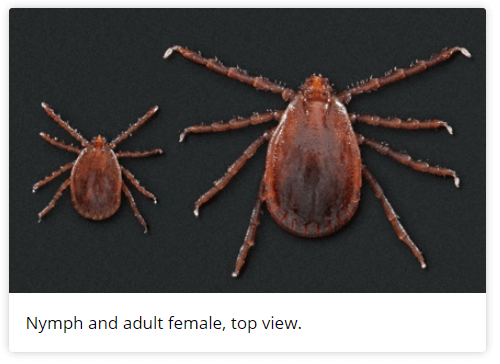Invasive Vampire Tick Clones Itself and Can Bleed Cattle Dry! What You Need to Know
Posted by Mosquito Squad
December 20, 2023
It sounds like a horror story, but unfortunately, it is a reality. The Asian longhorned tick has arrived in the United States, and it is a tiny terror!
- It can clone itself without a mate.
- Females produce as many as 2,000 offspring.
- They are aggressive feeders.
- They can bleed a cow to death.
 A Tick that Clones Itself
A Tick that Clones Itself
All a female Asian longhorned tick needs to reproduce is her favorite food source, animal blood. The ability to clone itself times 2,000, allows the Asian longhorned tick to expand its population and spread from place to place quickly.
Aggressive Vampire-Like Feeding Habits
What allows Asian longhorned ticks to bleed a cow dry? Unlike other ticks that embed themselves on a host for 3-6 days of feeding, the Asian longhorned can stay attached for up to 19 days!
Not only that, they attack their host in groups, depleting their host entirely.
In North Carolina, where this tick has been doing the most damage, one dead cow was found with more than 1,000 ticks on it! In New Jersey where the tick was first discovered in the U.S. in 2017, a deceased sheep was found with hundreds of ticks covering it, and the scientists were being swarmed by them as they were investigating. If that doesn’t give you the creepy crawlies, nothing will!
What is the Risk to Humans from the Asian Longhorned Ticks?
Just discovered for the first time in the United States in 2017, we still don’t know everything there is to know about the Asian longhorned tick.
We do know they have been spotted in Arkansas, Connecticut, Kentucky, Maryland, North Carolina, New Jersey, New York, Pennsylvania, Tennessee, Virginia, and West Virginia.
And we also know that in other countries their bites have caused serious illness to people. The CDC continues to investigate and study the tick for bacteria and viruses it may carry and spread.
If you find one of these monsters, collect it in a baggy with alcohol and call the local health department.
Tick Safety
We urge you to avoid tick bites. Follow the Cs of tick control for keeping your property less hospitable to these dangerous pests. And follow the Minnesota Department of Health’s tick safety advice for prevention before you go outdoors and tick checks after you come in.
For additional elimination of these gross little critters, consider our tick control services for your property. With a combination program including barrier treatment and tick tubes, you can enjoy as much as a 90% reduction in ticks on your property. Call today for a free estimate.
